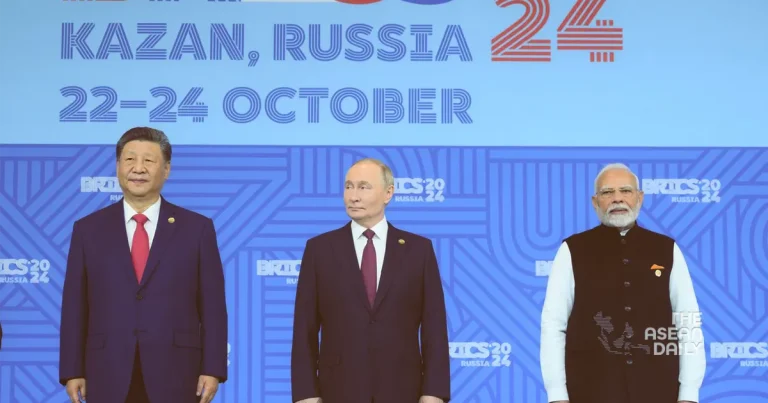24-10-2024 (SINGAPORE) Four ASEAN nations have secured partner country status with BRICS, marking a significant shift in the global economic landscape. Malaysia, Indonesia, Vietnam, and Thailand join nine other nations in this expanded partnership with the influential economic bloc, BRICS announced at its summit in Kazan, Russia.
The development comes as BRICS continues to position itself as an alternative to Western-dominated international institutions. The bloc, which already includes economic powerhouses Brazil, Russia, India, China, and South Africa, recently welcomed Egypt, Ethiopia, Iran, and the UAE as full members.
Malaysian Foreign Affairs Minister Mohamad Hasan highlighted the strategic importance of this partnership, emphasising the enhanced trade prospects within a combined market of 3.2 billion people. The move aligns with Malaysia’s upcoming ASEAN chairmanship in 2025 and its commitment to championing Global South collaboration.
“This partnership represents Malaysia’s strategic positioning as a neutral nation, balancing relationships with global powers whilst pursuing fresh economic opportunities,” Hasan stated in Parliament. Malaysia’s Economy Minister Rafizi Ramli is scheduled to present the nation’s position at the Kazan summit.
Indonesia’s approach to the partnership was outlined by newly appointed Foreign Minister Sugiono, who emphasised the importance of unity among developing nations. The Indonesian foreign ministry stressed their focus on advocating for a more equitable global order through the BRICS Plus framework.
Political analysts suggest multiple motivations behind this regional pivot. Independent analyst Halmie Azrie notes that the partnership offers ASEAN members opportunities to diversify their international relations amidst global uncertainties, including conflicts in Ukraine and the Middle East.
Dr Oh Ei Sun, senior fellow at the Singapore Institute of International Affairs, suggests China’s influential role in BRICS may have been a significant factor in the decision. “For Malaysia and Indonesia particularly, this alignment also reflects their position on global issues, including their support for Palestine,” Dr Oh observed.
The partnership’s impact on ASEAN dynamics remains a topic of discussion. While some express concerns about potential strain on regional unity, others see opportunities for enhanced multilateral engagement. Malaysia’s upcoming ASEAN chairmanship could facilitate increased interaction between ASEAN and BRICS nations, as evidenced by Prime Minister Anwar Ibrahim’s recent invitation to Russian President Vladimir Putin for the 2025 ASEAN Summit.
However, questions persist about BRICS’ operational effectiveness given its informal structure and rapidly expanding membership. The challenge of maintaining cohesion while incorporating diverse national interests remains a key consideration as the alliance continues to evolve.
With BRICS economies now representing approximately 28% of global GDP, valued at over US$28.5 trillion, this partnership signals a potentially significant shift in international economic cooperation and diplomatic relations.




